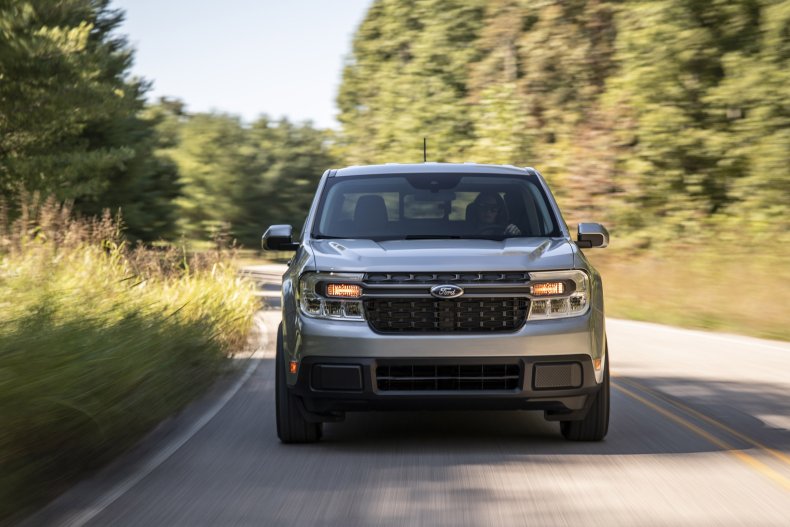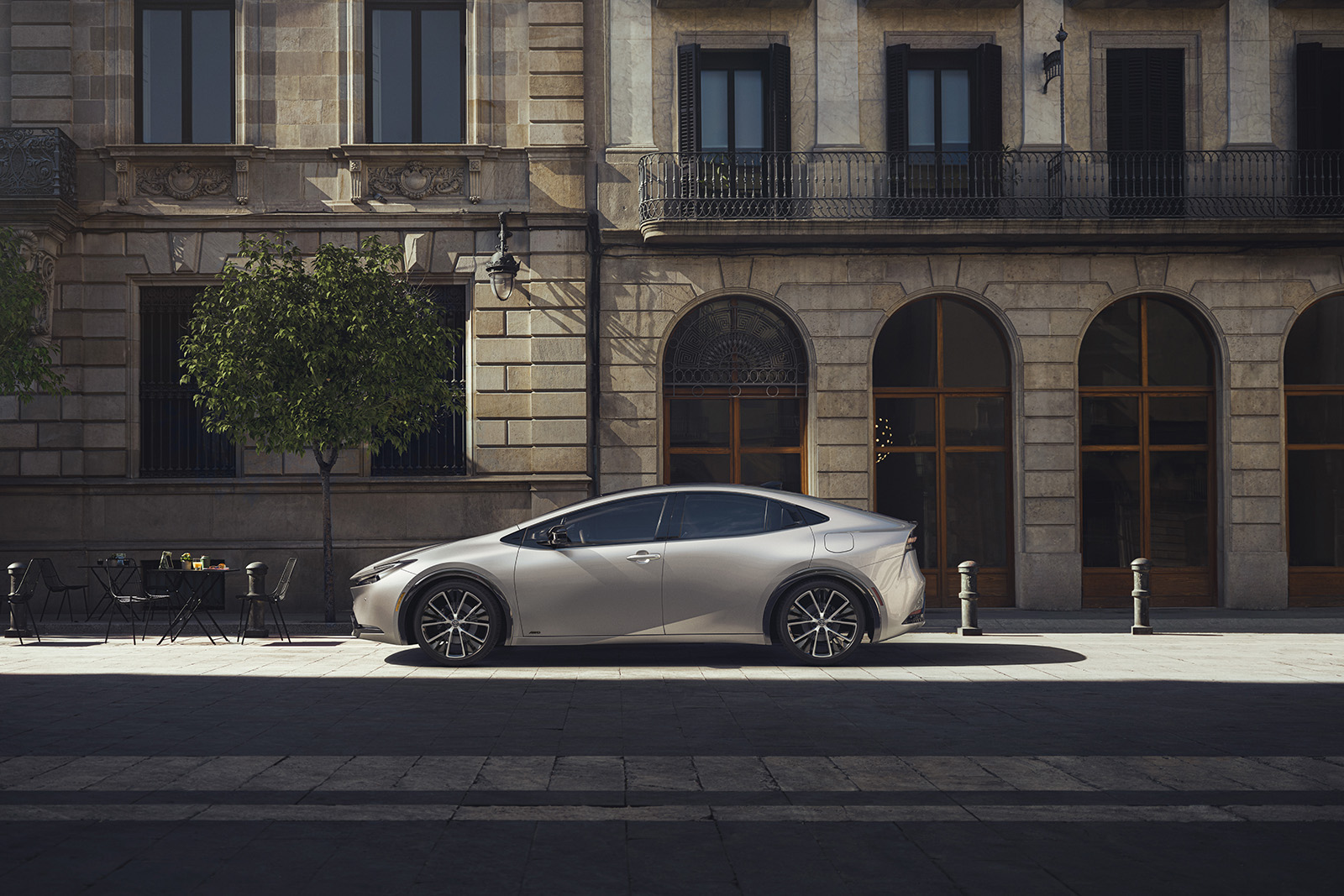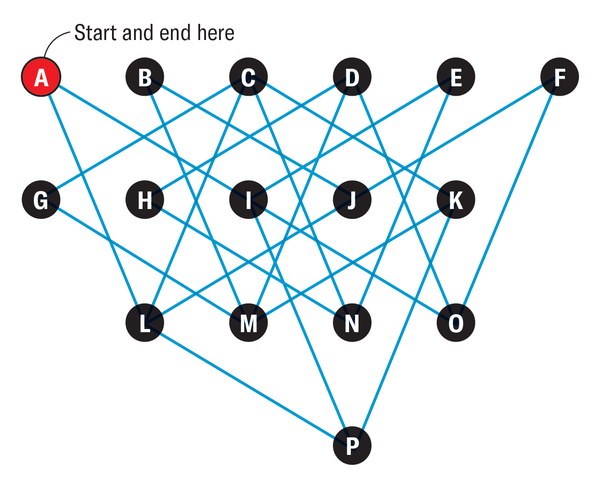Detroit’s auto manufacturers have put small cars on the shelf. The Ford Focus, Chevrolet Bolt EV and Chevrolet Spark are either gone completely or wrapping up their run.
Stellantis’ American brands, Dodge, Chrysler, Jeep and Ram haven’t sold a small sedan in years, though their Italian counterparts offer Fiat and Alfa Romeo cars for sale in the U.S. (with few takers).
In their place, companies are producing small sport utility vehicles (SUVs) and crossovers, which are serving almost the same market that cars like the Ford Fiesta and Chevrolet Cobalt once did, albeit at higher price points. Chevy’s new entry-level model is the redesigned Trax SUV and Ford offers the Maverick pickup truck, which starts at $22,595 but has a five-to-eight-month waitlist as of the beginning of this year.
What was once fertile small car ground for those companies has been ceded to Honda, Toyota, Nissan, Hyundai/Kia and Volkswagen, who still enjoy three-quarter million sales per year, but even that number is shrinking. Total compact cars sold in the U.S. 2021 was 993,561.
Last year it was down to 748,290 with sales constrained by the availability of product due to COVID-19 related supply chain issues.
Stellantis
Has the market left its buyers, or have its buyers moved on to SUVs?
“The entry vehicle has evolved. Automakers now offer compelling alternatives to the small sedan or hatchback with frumpy styling, traditionally the only route to cheap or efficient vehicles. Ford’s hybrid-powered Maverick pickup and the latest Chevrolet Trax are excellent examples of automakers redefining what the most affordable vehicle in the lineup can be. It’s an exciting time with new vehicle options for the entry buyer,” Paul Waatti, manager of industry analysis at AutoPacific told Newsweek.
Toyota happily still serves those small car buyers with its Corolla, of which Toyota moved 222,000 last year. That’s slightly down from the previous year, but still a lot of vehicles.
“We are committed to sedans that make up a significant portion of the marketplace, and we will continue to serve loyal customers with new and refreshed offerings that are of high quality, safe and fun to drive. Recently, we have introduced the all-new Prius, all-new Crown, Corolla GR and Lexus LS with positive feedback and results,” Victor Vanov, corporate communications manager, Toyota Motor North America told Newsweek.

Toyota Motor Sales, U.S.A., Inc.
Nissan just updated its pint-sized Versa sedan. Its starting price of $16,825, including destination, makes it one of the three least expensive cars sold today. Nissan also sells the Sentra, which sits in fifth place in sales behind sedans from Toyota, Honda, Hyundai and Kia.
“Both Versa and Altima were updated in the fall of 2022, with refreshed styling and new technology. Meanwhile Sentra is about to be enhanced for 2024, also with new styling and additional features. We are continuing to invest in the sedan segment to offer our customers great-looking cars equipped with convenient, entertaining and safety-enhancing technologies,” Stephen O’Neil, senior manager, brand and regional communications Nissan Group of the Americas told Newsweek.
“Through the first quarter of 2023, Altima and Sentra were the brand’s second and fourth best-selling nameplates in the U.S. showing continued strong demand,” he said.
Some automakers seem committed to small sedans, at least for the near future. Others, mostly American automakers, are fine with putting buyers in small SUVs that are on par with sedans in features and fuel mileage, and they offer a little more space for the growing level of stuff Americans want to move around.

Ford Motor Company
“SUVs and crossovers were traditionally less fuel efficient and more expensive, but that’s not the case anymore. Engine and technology advancements have leveled those drawbacks. SUVs and crossovers are now just as fuel efficient and offer more hauling capability as similar-sized cars for about the same price in many cases,” said Waatti.
Luxury automakers are still building small sedans, but don’t sell many of them in the U.S. The BMW 2 Series, Audi A3 and Mercedes-Benz A-Class continue to be the least expensive entry points to their respective brands in North America.
Bigger is still proving better for these companies. BMW’s larger 3 Series outsells the 2 handily, as does its X3 SUV. The same goes for Audi and its A3. The small sedan is outsold by the A4, and Audi’s small SUVs.
In Europe, where streets are smaller and parking is at a premium, the world automakers continue to still sell small sedans and hatchbacks. The Hyundai i30, Nissan March and Toyota Yaris are all on sale in Europe. Acura sells its CDX compact SUV in China and the Kia Stonic, a crossover smaller than the Soul, is currently driving around the United Kingdom. BMW continues with its tiny 1 Series in Europe while the small Mercedes-Benz B-Class is also on sale there.
Volvo’s new EX30 electric SUV stands out as a global model that is tiny, powered by electrons, and has a low price point. It arrives in the U.S. next year.
Research by Nissan found out that three-quarters of consumers believe sedans are more fuel efficient and more affordable than other types of vehicles. It also found that about half of consumers believe sedans are cooler and more fun to drive than SUVs.
J.D. Power and GlobalData projecting 7.6 units sold in the month of June, which is near pre-pandemic levels. The same companies say that consumers will spend nearly $281.4 billion on the purchase of new vehicles in the first half of 2023. That spend favors trucks, SUVs and sedans, with plenty of product options to go around.















